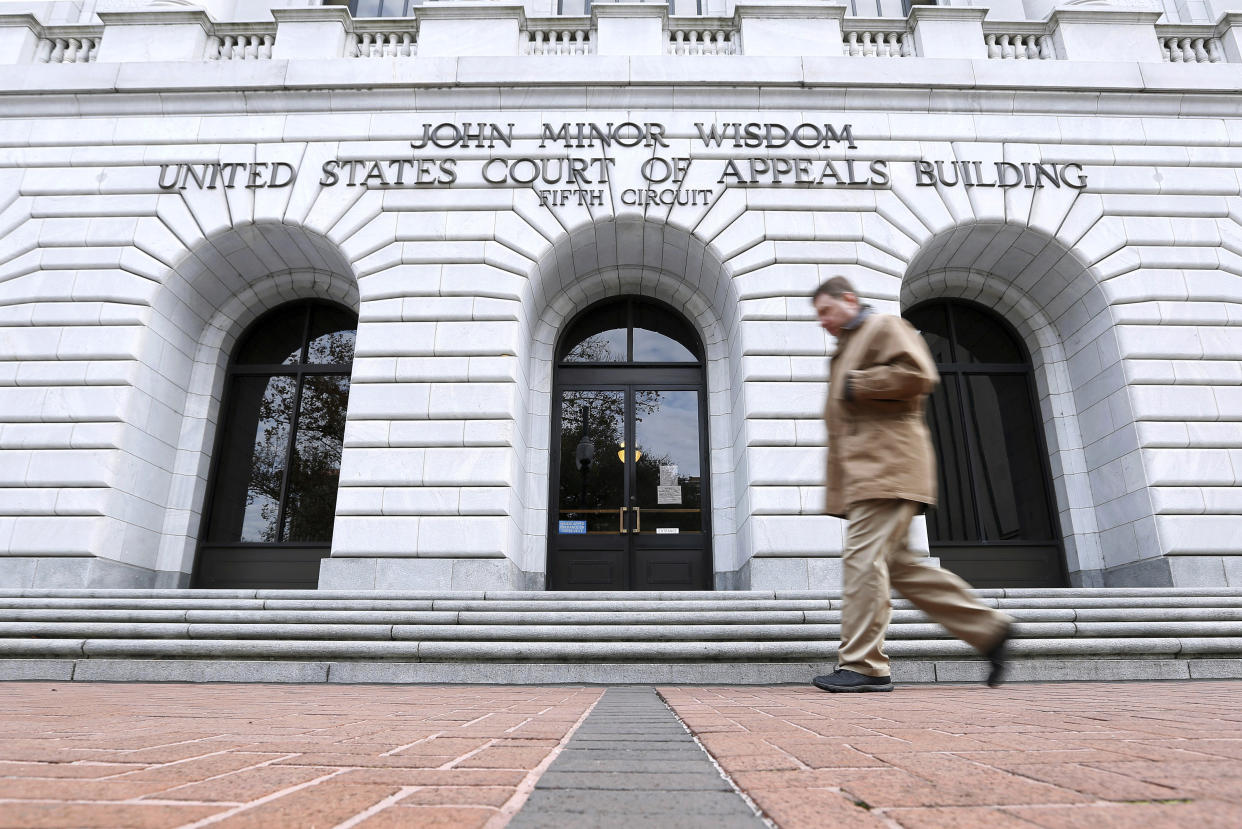Suit alleging off-camera jail beatings revived

NEW ORLEANS (AP) — A federal appeals court cleared the way Friday for a lawsuit to proceed against guards and officials at a privately run north Louisiana jail where an inmate died with a fractured skull in 2015.
The lawsuit by family members of Erie Moore includes allegations that guards at Monroe’s Richwood Correctional Center sometimes beat and pepper-sprayed handcuffed prisoners, including Moore, in an area where there were no security cameras.
A federal judge had thrown out much of the lawsuit, which seeks damages, but a three-judge panel of the 5th U.S. Circuit Court of Appeals in New Orleans revived much of the case in a ruling last month. On Friday the appeals court issued an order denying a rehearing by the full court, sending the case back to U.S. District Judge Terry Doughty.
“The record in this case is beyond troubling," 5th Circuit Judge Don Willett wrote in the July opinion, saying a jury trial is needed to sort out the facts.
Among the troubling aspects Willett's July opinion cited was testimony that guards routinely took inmates to an area of the lockup called the “Four-Way” where they could not be caught on video as they pepper-sprayed and beat inmates.
“Even an Assistant Warden at the prison admitted that both he and guards used the Four-Way to ‘interrogate’ prisoners. And two prison guards have testified under oath that they used the Four-Way to interrogate and abuse multiple handcuffed detainees," Willett wrote in the July opinion that was cemented by Friday's action.
Among the opinion's holdings were that Moore's family was entitled to pursue claims that excessive force caused Moore's death, that the private businesses contracted to run the lockup — Richwood Correctional Center LLC and LaSalle Management LLC — are not immune from the lawsuit, and that the family can pursue punitive damages against the corporations and the guards.
The record shows that Moore had been arrested at a Monroe doughnut shop on a disturbing the peace charge when he was brought to the jail. He was described as “agitated and noncompliant” when a nurse tried to examine him. Although he could have been placed in a cell alone, Willett wrote, he was placed in a cell with another “combative” inmate, Vernon White. And the two were never separated, despite fighting, until White was found having a seizure and with blood around his mouth. White died later at a hospital.
Moore died hours later after being forcibly removed from the cell. The court record says there is video showing that he was struck on the head once by a guard and that he was slammed to the floor once and dropped once as guards were carrying him.
"Guards then picked Moore back up and carried him to the Four-Way," Willett wrote.
Willett, appointed to the court by former President Donald Trump, wrote for a panel that included James Ho, also a Trump appointee, and Stephen Higginson, appointed by former President Barack Obama. Ho dissented in part in the July opinion. He asserted among his reasons that the family's wrongful death claims require a determination of who among the defendants caused Moore's death.
But, according to Friday's filing, neither Ho nor any other member of the 17-member court called for a full-court rehearing, meaning the case goes back to Doughty, another Trump appointee.
The prison was the site of a 2019 suicide by a Cuban immigrant, the subject of an investigation by The Associated Press that found neglect and violation of government policies.
In an unrelated case, terms of a court settlement that were made public as a result of a public records request by the AP in 2020 showed that the prison was told to pay a total of $177,500 to five former inmates whose faces were pepper-sprayed while they were handcuffed and kneeling in 2016. LaSalle did not admit liability in the settlement.

 Yahoo Movies
Yahoo Movies 
